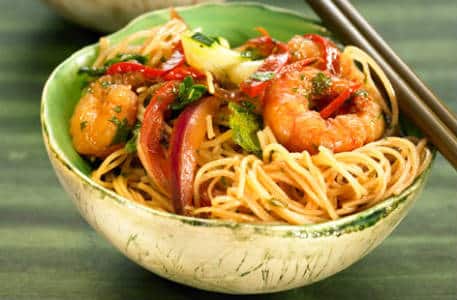Summer brings a vibrant bounty of fresh produce, including fresh berries, perfect for colourful, nutrient-packed meals. Biting into a sun-ripened tomato or a crisp cucumber is a seasonal delight, keeping us refreshed and healthy.
Growing your own veggies adds to the joy, offering a rewarding way to connect with nature. Let’s explore why summer vegetables are a must for the season!
What Are Summer Vegetables?
Summer vegetables are those crop varieties that flourish in warmer climates with enhanced sunlight exposure. They are specifically adapted to grow in the heat, leveraging these conditions to reach their potential. Such veggies include heat-loving plants like cucumber, spinach, lettuce, okra, and broccoli. Typically, they require considerable amounts of water to counterbalance the effects of higher temperatures and increased evaporation rates during summer. Seasonal vegetables provide a wider variety of nutrients as each has different vitamins, minerals, and antioxidants, making them an essential part of your daily diet.
Reasons to Incorporate Summer Vegetables in Your Diet
Eating summer vegetables is both delicious and healthy. They are rich in vitamins, potassium, and fibre while being low in calories and high in water, aiding digestion and hydration. Many also have anti-inflammatory and antioxidant benefits, supporting immunity, heart health, and weight loss, helping to prevent heat exhaustion. Enjoying seasonal produce helps you stay healthy in hot summers.
Nutritional Value
Every kind of vegetable brings its unique combination of essential nutrients. Let’s consider a few summer favourites to understand their nutritional value:
- Cucumber: Known for its high water content, cucumbers help ward off dehydration in the heat. They also contain a notable amount of vitamin K, which contributes to blood clotting and bone health while also supporting the immune system. Additionally, the added benefits of potassium and vitamin C make cucumbers a fresh addition to salads or a cooling element in your favourite drinks.
- Spinach: Abundant in folate, calcium, iron, and antioxidants, spinach contributes to cardiovascular health, bone strength, and smooth digestion. The high iron content helps improve your blood’s oxygen-carrying capacity, leading to improved energy levels.
- Zucchini: This versatile summer squash contains vitamin C, magnesium, and fibre. It can promote heart health, improve digestion, and aid weight loss.
The table below provides more details on the nutritional values (per 100g) of some common summer vegetables:
| Vegetable | Calories | Protein (g) | Fibre (g) | Vitamin C (mg) | Potassium (mg) |
|---|---|---|---|---|---|
| Cucumber | 15 | 0.7 | 0.5 | 2.8 | 147 |
| Spinach | 23 | 2.9 | 2.2 | 28.1 | 558 |
| Zucchini | 17 | 1.2 | 1.0 | 17.9 | 261 |
Easy to Grow
Growing your own vegetables might seem daunting, but don’t worry! A number of summer veggies, including peas, are relatively straightforward to cultivate, even for novice gardeners. Here’s a short guide on growing popular summer vegetables in your backyard patch:
- Cucumber: Cucumbers love plenty of water and sun, making them ideal for summer growth. These climbers require a trellis or climbing frame and should be watered regularly. Mulch: Consider spreading a one- to two-inch layer of mulch around your cucumber plants to conserve soil moisture and suppress weeds.
- Spinach: Despite being a cool-season crop, spinaches can withstand summer heart in shady spots. Ensure to keep the soil moist and pick leaves as they mature for a continuous harvest.
- Zucchini: This squash plant has a reputation as an abundant producer needing care with regular watering and good sun exposure. Plant them in a compost-filled mound to ensure excellent drainage.
Growing your own summer vegetables can be rewarding both in terms of the therapeutic benefits of gardening and fruitful harvests that introduce fresh, nutrient-rich veggies into your diet.
Seasonal Produce Tastes Better
Why does seasonal produce taste better than out-of-season varieties shipped from afar? The answer lies in the harvesting process.
Seasonal fruits and vegetables are harvested at their peak ripeness. At this stage, they have fully developed their flavour profile, are nutritionally rich and usually possess the perfect texture. In contrast, out-of-season produce is often picked before it’s ripe for it to survive long transportation. Subsequently, they may lack real flavour and crisp texture and might not provide the optimal nutrient content.
Ten Must-Try Summer Vegetables
From crisp cucumbers to tangy tomatoes, delightfully earthy spinach, and zesty zucchinis, a multitude of greens await to be explored. Here are ten summer vegetables you must try this season for a fabulous culinary experience and for their myriad health benefits.
Cucumber
A quintessential summer vegetable, cucumber is known for its refreshing crunch and high water content of almost 96%. This makes it an excellent ally against dehydration during the hot summer months. A noteworthy feature of cucumber is its vitamin K content, contributing to healthy bones and efficient blood clotting.
Being low in calories yet high in hydration and necessary minerals, cucumbers are an ideal addition to a weight loss regime. If you’re aiming to keep your diet light and fresh, cucumber should be a staple in your shopping basket!
Brinjal (Eggplant)
Brinjals, or eggplants as they are popularly known in many parts of the world, are a versatile summer vegetable that can be a star ingredient in a wide array of dishes. Their slightly bitter taste and soft texture, when cooked, make them a great addition to various cuisines.
Not only are they delicious, but they also offer an impressive range of health benefits. Rich in fibre, they support digestion while the presence of antioxidants like vitamin C and manganese helps boost the body’s defences against various diseases. Also, their potassium content promotes heart health and helps maintain fluid balance in the body.
Bottle Gourd
Known as Lauki in Hindi, bottle gourd is a popular, nutrient-rich vegetable grown during summer. It boasts soothing properties that help counter excess body heat generated during hot months. A vital source of vitamin C as well as other minerals like dietary fibre, Riboflavin, Zinc, Thiamine, Iron, Magnesium, and Manganese, it contributes to improved digestion and enhanced heart health.
Eating bottle gourd is known to promote weight loss owing to its low-calorie yet high fibre content. Its high water content keeps the body hydrated and helps maintain clear skin.
Pumpkin
Pumpkin is another wonderful summer vegetable often associated with autumn due to Halloween celebrations. Packed with critical vitamins like vitamin A and high in beta carotene, a potent antioxidant, this bright orange veggie is great for eyesight and skin health. Furthermore, it’s high in fibre, low in calories, and full of enriching nutrients such as vitamin C, potassium, and iron.
In Indian cuisine, sweet treats made from pumpkin are popular during festivals. But that’s not all — pumpkin stir-fries, soups, stews, curries, and even salads are other interesting ways to enjoy this vegetable summer season.
Spinach
Yes, you heard it right! Spinach isn’t just a cool-season leafy green; several varieties can withstand warmer climates. Look for heat-resistant cultivars such as Malabar or New Zealand spinach to grow in your summer garden.
Renowned for an array of nutrients, including vitamin A, C, K, magnesium, iron, and others, spinach promotes heart health, aids digestion, and improves blood quality. Its high water content also makes it a hydrating veggie suited for summer.
White Onion
The humble white onion adds flavour to numerous globally loved dishes. This summer vegetable provides numerous health benefits, such as improving heart health and controlling blood sugar levels. The sulphur compounds and antioxidants present have been linked to cancer prevention, while the chromium aids in regulating blood glucose. Besides, their antibacterial properties are beneficial in combating inflammation, allergies, and other infections.
Zucchini
Zucchini, a staple in summer gardens, is a versatile vegetable packed with nutrients like vitamin C and fibre. Its high water content makes it a hydrating choice, perfect for warmer climates. Zucchinis thrive with plenty of water and partial shade, best planted alongside organic matter for optimal growth. Incorporate zucchinis in salads, stews, or on the grill for a flavorful addition to your summer meals. Get creative with this abundant and healthy vegetable for the summer season.
Okra
Okra, also known as lady’s finger, is a versatile vegetable packed with fibre, folate, and antioxidants during summer. This pod-like veggie, popular in Indian cuisine, supports digestion and boosts immunity. Okra thrives in warm climates and benefits from plenty of water and organic matter. Whether added to stews, curries, or grilled for barbecue, okra adds a unique flavour and texture to dishes. Its high vitamin K and low calories make it a great choice for overall health and wellness. Enjoy okra for its exceptional taste and numerous health benefits.
Corn
Corn, a summer staple, is a versatile veggie in various cuisines. Packed with vitamin C and fiber, it boosts immunity and aids digestion. Whether grilled, boiled, or roasted, corn adds a sweet crunch to salads, stews, or barbecues. This high-water content veggie thrives in warm climates and benefits from plenty of water and organic matter. Enjoyed as a snack or a side dish, sweet corn is a popular addition to summer menus, offering both taste and health benefits.
Tomatoes
Tomatoes are a versatile addition to summer dishes, packed with vitamin C for immune support. These vibrant red fruits, often mistaken for vegetables, offer a burst of flavour in salads or sauces. Tomatoes thrive in warm climates with plenty of water and partial shade. Their high water content helps prevent dehydration during hot weather. Including tomatoes in your diet may aid heart health and reduce the risk of heart disease. Embrace the goodness of tomatoes this season for both taste and health benefits.
Conclusion
When planning your summer garden, consider the array of vibrant and nutritious summer vegetables available to elevate your dishes. From vitamin-rich tomatoes to versatile zucchinis, these seasonal vegetables offer a myriad of health benefits. Experiment with cooking techniques like grilling or roasting to enhance flavours, or simply enjoy them raw in salads. With their high water content and essential nutrients, summer vegetables not only support overall health but also add a burst of flavour to your meals. Embrace the summer bounty and savour the goodness of these fresh produce options.
Frequently Asked Questions
Which vegetables are easiest to grow in summer?
Zucchini, tomatoes, and okra are among the easiest vegetables of summer to grow. These veggies thrive in warm weather with minimal care. Adding corn to your garden is also a good choice for beginners.
Can the same summer season vegetables be grown in different regions?
Yes, summer vegetables like zucchini, okra, corn, and tomatoes can be grown in different regions with varying climates. Understanding the specific requirements of each vegetable is key to successful cultivation in diverse geographical areas.
What are some creative ways to cook summer vegetables?
Transform your vegetables in the summer season into culinary masterpieces with these creative ideas: grill zucchini slices with herbs, stir-fry okra with garlic, make a refreshing corn salad, and craft a homemade tomato sauce. Elevate your dishes with these innovative cooking techniques!
How can I store summer vegetables to keep them fresh for a longer time?
To keep summer season vegetablefresh longer, store zucchini, okra, corn, and tomatoes properly. Use breathable bags for zucchinis and okras, refrigerate corn in husks, and keep tomatoes at room temperature away from sunlight. Follow these tips to enjoy your summer produce for an extended period.




















